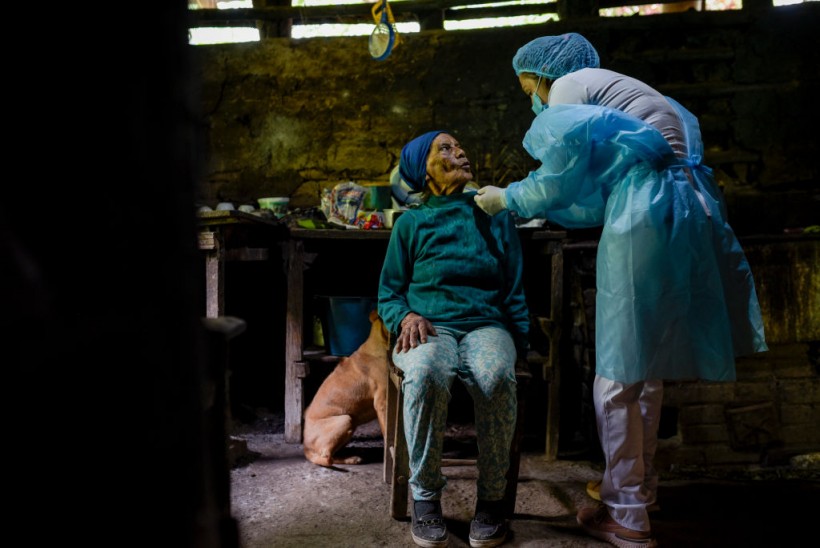
COVID-19 can cause autoimmune disorders in rare situations, according to a Korean study that identifies the potential long-term side effects connected to the respiratory disease.
According to the study, COVID-19 can cause alopecia (hair loss), psoriasis, vitiligo, vasculitis, Crohn's disease, ulcerative colitis, rheumatoid arthritis, adult-onset Still's disease (painful skin rash), Sjogren's syndrome, ankylosing spondylitis, and sarcoidosis.
COVID-19 increases the risk of autoimmune disorders, researchers found. In particular, patients had shown a 68% higher risk of Crohn's disease, 59% of sarcoidosis, 12% to 74% of various kinds of alopecia, and a doubled risk of vasculitis, as reported by US News & World Report.
Leading researcher Dr. Sung Ha Lim from Yonsei University's Wonju College of Medicine in South Korea underlined the importance of a comprehensive COVID-19 treatment plan that addresses acute and long-term negative effects. Given the sizable worldwide community of COVID-19 survivors, Dr. Lim also emphasized the necessity for attentive surveillance of emerging autoimmune illnesses.
Unvaccinated Individuals Face Greater Risk
Over 6 million people who had not been exposed to COVID-19 were also included in the study, which gathered data from roughly 355,000 people who had been exposed to the virus. According to Dr. Lim, variables that raised the risk of acquiring these autoimmune disorders were the severity of the COVID-19 infection and not having received a vaccination. Notably, those who were not immunized showed a greater risk of developing autoimmune disorders such as Crohn's disease and alopecia areata, alopecia totalis, and alopecia areata.
Read Also: Elon Musk's X to Take Crisis Response as Misinformation Surges Amid Israel-Hamas War
The recent study emphasizes the possible long-term health effects of COVID-19 and stresses the significance of ongoing surveillance and medical assistance for those who have recovered from the virus.
In a separate study, reported by CNA, health experts in Singapore discovered that unvaccinated people who had recovered from COVID-19 were more likely to experience heart issues a year later. In a highly immunized, multiethnic Southeast Asian community, the Nanyang Technological University (NTU) study looked at the risk of protracted COVID-19. Out of 106,012 unvaccinated COVID-19 survivors, 912 developed heart issues.
Novovax Updated COVID-19 Vaccine Soon to Be Available in the US
In a related update, the modified COVID-19 vaccine produced by vaccine maker Novavax Inc. has been given the go-ahead for emergency use in people 12 years of age and older by the US Food and Drug Administration (FDA).
According to Reuters, the new COVID-19 vaccine has already been handed over to distributors in millions of doses, and it will soon be accessible at US pharmacies. Novavax wants to increase commercial sales of the upgraded injection to remain financially stable after the pandemic.
Due to manufacturing issues that prolonged their clearance process while COVID-19 was booming, Novavax, which uses a protein-based vaccination technology with a long history in disease prevention, lost out on the pandemic bonanza enjoyed by mRNA vaccine competitors.
Related Article: Teen Depression in the US Soared During COVID-19 Pandemic, with Alarming Treatment Gaps: Study









